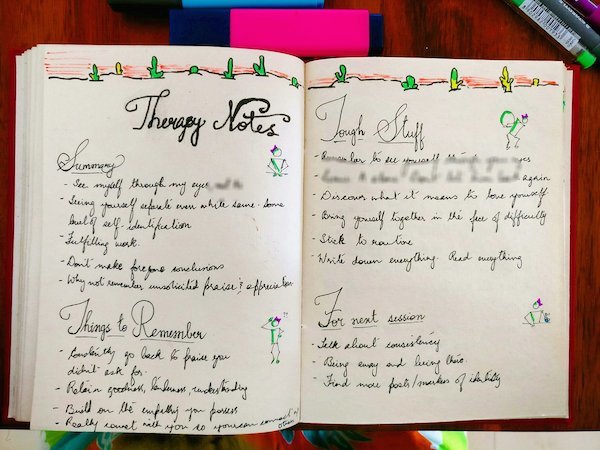Ask the Experts: Busting Five Myths About Therapy
By Kamna Chhibber
Undertaking therapy is not an easy decision for most people. Over the years that I have interacted with patients, doctors, friends and family I have recognised the many myths and misconceptions that people harbour about both therapy and therapists. It is not enough to simply say ‘Therapy is helpful and so you must consider it”. We need to break through the myths that surround it.
ALSO READ: SIX THINGS TO KNOW BEFORE ENTERING THERAPY
Through this blog I hope to dispel at least some of the myths which I have come across frequently.
-
“Therapy is like talking to a friend. I can simply go and speak to a friend or family member instead” – Therapy is nothing like speaking to a friend or family member. All our interactions with others have reciprocity associated with them. If you share something, your friend or family member is likely to, and in fact expected to share their own personal experience as well. This is not the case in therapy where the focus is only YOU. Therapists rarely, if ever, engage in personal disclosure. They are trained experts who through years of education and training have developed the skills to be able to tackle the cognitive, emotional, psychological and behavioural issues you may be experiencing. The additional element of confidentiality makes it easy for you to bare all and speak about things that run in the deepest, darkest recesses of your mind without needing to censor anything.
-
“A therapist needs to have similar experiences to be able to help me with my life situations” – The most important experience anyone in therapy is looking for is to be understood. And to be able to understand where another person is coming from, what they may be thinking or feeling and what impact it could potentially have on them, does not require going through the experience yourself. Rather, having the ability to be empathetic is important and is a skill that most therapists possess and are trained to develop. The training that therapists have along with their own trajectory of personal experiences can help them utilise those experiences to guide an understanding of different situations. It is not a must for your therapist to have the same experiences for them to be able to understand you, empathise with you or help you move through a situation.
-
“Therapy is for crazy people. It cannot aid in personal growth” – Most people believe that going to a therapist is warranted only if you have a serious mental health issue or disorder. In fact, the reality is quite the opposite. Therapists play a significant role in helping people cope with stress, determine their growth trajectories, and aid in personal development as well. If there are life situations which you struggle to cope with or you are seeking growth in your personal or professional life then reaching out to a therapist can be rather beneficial.
ALSO WATCH: UNDERSTANDING MENTAL HEALTH
-
“People who go to therapy are weak” – If you are struggling with something then seeking help for it is not a sign of weakness. It takes courage to be able to state that you may not be able to cope with something or that you need the assistance of another person to help you achieve your goals. It is at times easier to stay stuck in your situation doing nothing about it. Doing something and making the call of reaching out to someone for help is more difficult and is an indicator of the strength of your character. The fact is that most successful people have had coaches and mentors assisting their growth and there is no harm in your seeking the assistance of a psychologist for the same.
-
“All therapists do is listen and not speak. What’s the point of wasting money on venting” – The therapeutic process no doubt begins with listening and asking questions, gently prodding the person to garner a better understanding of the life situations and personality of the person coming for therapy. And to this extent it can seem like therapists only listen. However, this is not the whole process of therapy. Therapy is a collaborative process where the therapist and the client work together to identify problems, personality related variables, aspects of situations which are amenable to change and those which aren’t. They together work to actively problem solve and simultaneously help the client develop the skills required to tackle situations be it related to their emotional or psychological functioning, or decision making and problem solving.
Therapy can no doubt have beneficial effects for an individual. However, sometimes it can take a little while to find the right therapist. Make sure you feel connected to your therapist and feel understood by him or her. If not, then don’t hesitate to reach out and find another therapist who can be a better fit for you.
About the Author: Kamna Chhibber is a Clinical Psychologist, Heading the Department of Mental Health and Behavioural Sciences for Fortis Healthcare. She is a cognitive behaviour therapist, with a particular interest in relationships, trauma, abuse and the impact of personality-related variables on mental health. She has been in practice for the past decade.
Feedback is welcome: Tweet @Kamna_Chhibber @healthcollectif
Coming soon: The next blog in this series would be on 5 things to keep in mind when deciding if your therapist is right for you.
Disclaimer: Material on The Health Collective cannot substitute for expert advice from a trained professional.





Pingback: Is Your Therapist Right for You?